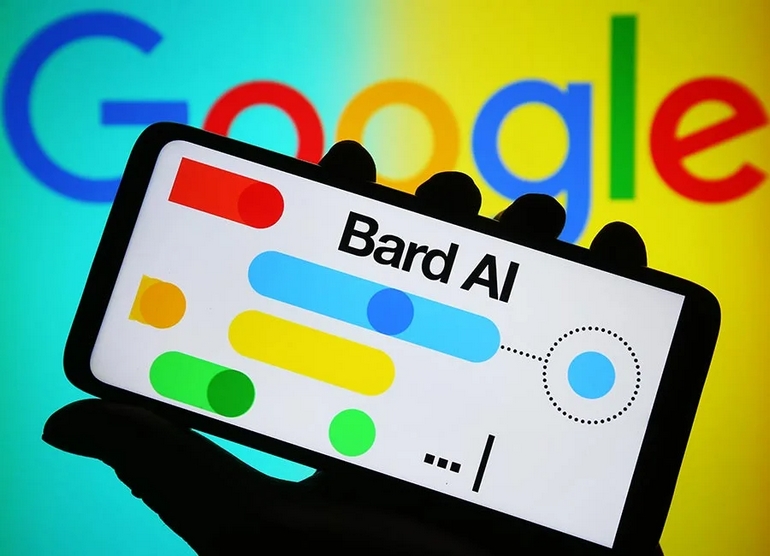Google’s parent company, Alphabet, is launching its artificial intelligence chatbot, Bard, in Europe and Brazil. This marks the biggest expansion of the product since its initial launch in the US and UK in March. The introduction of Bard intensifies competition with Microsoft’s ChatGPT as both are examples of generative AI designed to provide human-like responses.
Bard AI Faces Privacy Concerns in the EU
Bard’s European launch faced delays due to privacy concerns raised by the main data regulator in the bloc – the Irish Data Protection Commission. They argued that Google had not provided sufficient information about how their generative AI tool safeguards Europeans’ privacy for it to be justified within the EU market. However, Alphabet has since addressed these concerns through discussions with regulators regarding transparency, choice, and control.
During a briefing with journalists, Amar Subramanya (Engineering Vice President of Bard) stated that users have an option to opt out of having their data collected. He also mentioned that while Bard is currently an experiment without concrete plans for an app yet, they aim to be bold yet responsible in developing this technology.

Enhanced Features Worldwide
Google has recently introduced new features for Bard worldwide. Users can now choose between having answers spoken aloud or presented as text on screen. Additionally, prompts can include images alongside textual input. Jack Krawczyk (Senior Product Director at Google) highlighted that collaboration with Bard is possible across more than 40 languages including Arabic, Chinese German Hindi and Spanish.
Krawczyk further explained that hearing responses audibly allows users to approach ideas from different perspectives; whether checking word pronunciation or enjoying poetry or scripts being recited aloud. Furthermore, users gain flexibility by customizing tone and style preferences ranging from simple and long-form responses to professional or casual interactions. Moreover:
- Conversations can be pinned or renamed for better organization.
- Code export options are expanded to facilitate integration into various platforms.
- Images can now be used as prompts, enhancing the conversational experience.
The AI Hype and Wave of Investment
The immense potential of generative AI has sparked both excitement and concerns among global tech figures. Opinions on its impact range from fearing an end to humanity to solving climate change – or even both simultaneously. Consequently, companies have been investing billions in recent months with hopes of capitalizing on advertising and cloud revenue opportunities.
Start-ups like Mistral AI, just one month old, secured £86m in seed funding for building and training large language models. Elon Musk also made headlines by announcing xAI; an AI start-up comprising a team that includes engineers from OpenAI and Google. Notably, Musk advocates for regulation and pauses in AI development due to potential risks.
Another American company named Anthropic released their chatbot called Claude 2 as a competitor to ChatGPT. What sets Claude 2 apart is its ability to summarize extensive blocks of text akin to novels. The safety measures employed by Anthropic are referred to as “Constitutional AI” – employing principles guiding judgments made when producing text outputs.
However, it appears that novelty appeal alone may not suffice for sustained interest in AI chatbots based on recent web user statistics indicating declining monthly traffic and unique visitors for ChatGPT’s website during June.
Privacy Concerns Lead To Class Action Against Google
In the US, Google faces another class action lawsuit alleging misuse of users’ personal information during Bard’s training process. Filed in San Francisco federal court by eight individuals seeking representation for millions of internet users and copyright holders, the complaint argues that Google’s unauthorized scraping of data violates privacy rights alongside property rights associated with creative works shared online. Ryan Clarkson (Attorney representing the plaintiffs) emphasized that sharing content online does not grant ownership rights over personal information or creative expressions to Google.
Conclusion
The expansion of Bard into Europe and Brazil marks a significant step in the ongoing competition between generative AI chatbots. While privacy concerns initially posed challenges for Bard’s European launch, Alphabet has worked with regulators to address these issues. The introduction of enhanced features worldwide further enhances the conversational experience for users. As excitement around AI continues to grow, so does the need for careful consideration and regulation regarding its development and potential risks associated with data privacy.
Learn here more about AI and Machine Learning.
You can also reach out our social media team by following our pages on Facebook, Instagram and Twitter.


